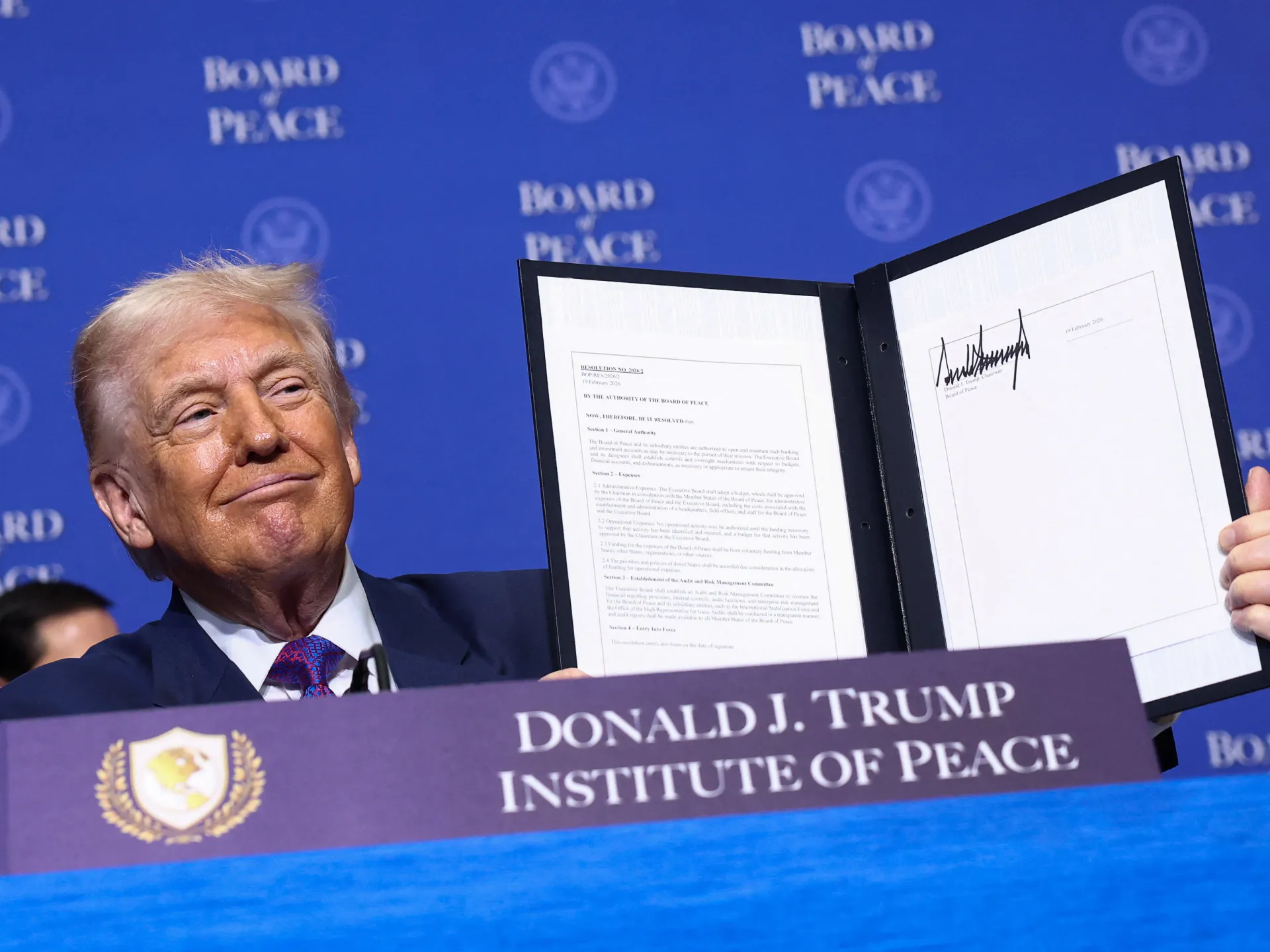Trump announces billions of dollars in Gaza aid at Board of Peace meeting | Gaza News
Donald Trump announces pledges to a Gaza reconstruction fund during the first meeting of his Board of Peace.
Donald Trump has told the first meeting of his Board of Peace that nine member nations have pledged $7bn to a reconstruction fund for the Gaza Strip, with five countries agreeing to deploy troops to an international stabilisation force for the Palestinian territory.
Addressing the board in a meeting in Washington, DC, on Thursday, the United States president said the US will make a contribution of $10bn to the Board of Peace, although he didn’t specify what the money will be used for.
Recommended Stories
list of 4 itemsend of list
Kazakhstan, Azerbaijan, the United Arab Emirates, Morocco, Bahrain, Qatar, Saudi Arabia, Uzbekistan and Kuwait have raised an initial down payment for Gaza reconstruction, Trump said.
“Every dollar spent is an investment in stability and the hope of a new and harmonious [region],” said Trump. He added, “The Board of Peace is showing how a better future can be built right here in this room.”
The funds pledged, while significant, represent a fraction of the estimated $70bn needed to rebuild the Palestinian territory that has been decimated after more than two years of Israel’s genocidal war.
Proposed stabilisation force
Meanwhile, Indonesia, Morocco, Kazakhstan, Kosovo and Albania have pledged to send troops for the Gaza stabilisation force, part of Trump’s 20-point plan to end Israel’s war on Gaza. Egypt and Jordan have committed to training police officers.
Indonesian President Prabowo Subianto announced his country would contribute up to 8,000 troops to the proposed force “to make this peace work”.
The force, led by a US general with an Indonesian deputy, will start in the Israeli-controlled city of Rafah and train a new police force, eventually aiming to prepare 12,000 police and have 20,000 troops.
While the disarmament of Hamas was a part of Trump’s 20-point plan for Gaza, the group has been reluctant to hand over weaponry as Israel continues to carry out daily attacks on Gaza.
Hamas spokesperson Hazem Qassem said any international force must “monitor the ceasefire and prevent the [Israeli] occupation from continuing its aggression.” Disarmament could be discussed, he said, without directly committing to it.
Trump first proposed the board last September as part of his plan to end the war. But since the October “ceasefire”, Trump’s vision for the board has morphed, and he wants it to have an even more ambitious remit to tackle other conflicts worldwide.
The board has faced criticism for including Israeli representatives but not Palestinians.
Reporting from Gaza City, Al Jazeera’s Hani Mahmoud said that Palestinians want to see concrete solutions rather than pledges.
“Past experiences with conferences, with regard to reconstruction, with regard to the peace process, all ended up with large needs for funding that were delayed or [plans] that were not implemented,” he said.
“Palestinians don’t want to see this again; they don’t want to see the Board of Peace as another international body that falls into the category of crisis management rather than finding a tangible solution to this longstanding problem, the Palestinian problem,” Mahmoud noted.
More than 40 countries and the European Union confirmed they were sending officials to Thursday’s meeting. Germany, Italy, Norway, Switzerland and the United Kingdom are among more than a dozen countries that have not joined the board, but are taking part as observers.
